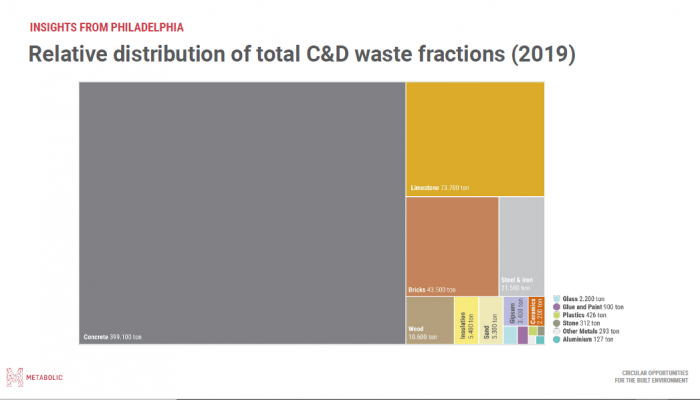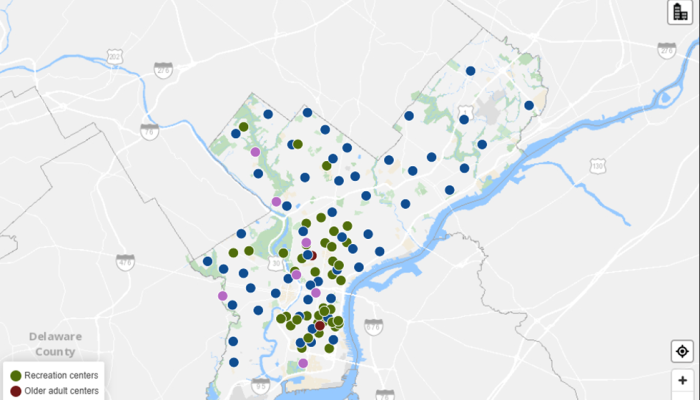Blog by Joanna Hecht, Pitch and Pilot Fellow, Office of Innovation and Technology
This blog post is part of a series that covers the first two years of the SmartCityPHL program.
To support Philadelphia’s zero waste goal by 2035 and to encourage a healthier economy for the future, SmartCityPHL partnered with Metabolic to pilot an “urban mining” tool. Urban mining is the systematic reuse of building materials, where old buildings that are demolished or renovated become the source of supply for new construction.
Selected for the first round of SmartCityPHL’s Pitch and Pilot program, Metabolic’s urban mining tool directly benefits the environment by reducing waste and carbon emissions. It also supports sustainable, green jobs, that benefit the local economy.
Metabolic’s platform analyzes data about construction permits and trends to predict the supply and demand for construction materials in a city or region. The urban mining tool analyzes this data to quantify the material, environmental, and financial benefits of preserving high-value construction materials when buildings are deconstructed and reusing these materials in new building projects.
There are already salvage and recycling operations that save some of the materials from demolition projects and repurpose or recycle them in Philadelphia. Through data analysis that makes the supply of used materials more predictable, the City and Metabolic are working to make that possible on a much larger scale.
The goal is to reduce waste and encourage reuse in the construction and demolition industry. This would not only benefit the environment through waste reduction, but also by reducing the carbon footprint of new construction. Producing and transporting new materials contributes heavily to the environmental impact of a building. Reusing materials, especially those like steel and cement that require a lot of energy to produce, can drastically reduce that impact.
This has implications for Philadelphia’s economy as we work to recover from the current economic downturn. Metabolic’s analysis identified new opportunities for entrepreneurship and innovation in the fields of building design, construction, deconstruction, and material management. Metabolic also identified policies at the city and state levels that could make the reuse of building materials easier and more economical. In the coming year, the SmartCityPHL team will work with partners in the public and private sectors to keep more building waste out of landfills and provide more opportunities for sustainable jobs in Philadelphia.




